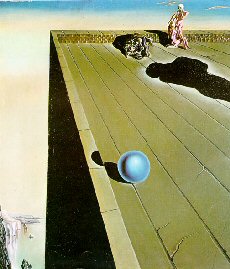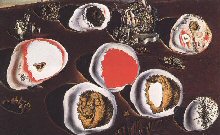Google recently discontinued Lively, the Second Life-like project. Even though that’s only one out of many of Google’s projects, it’s symbolic of a turning point from representation to reality.
In 1978, Jerry Mander in Four Arguments for the Elimination of Television (Quill, 1978) wrote:
In one generation, out of hundreds of thousands in human evolution, America had become the first culture to have substituted secondary, mediated versions of experience for direct experience of the world. Interpretation and representations of the world were being accepted as experience, and the difference between the two was obscure for most of us.
Thirty years later, it is not just about America and not just about TV. The detachment from direct experience grew layers. The attitude of substituting reality with mental representation was also one of the causes of the current financial problems, which constructed the illusionary “wealth,” considering information flowing through the cables as real goods.
Affirming that nothing is real is true both on the neurophysiological and spiritual levels. We have all heard that, especially in the Eastern traditions, the world is “maya,” an appearance, or illusion. Also, one of the mantras of people who populate the virtual worlds is to question reality saying that “there is nothing real in reality” since our experience is in any case mediated by our senses and by our nervous system which, starting from the mechanism of vision itself, only interprets reality. Following this line of thought we can say that there’s no objective reality and perhaps there’s no reality too, since every experience is mediated by our nervous system.
There’s an apparent concordance between neuroscientists, technical creators of virtual worlds and spiritual teachers. All of them, in different ways, say that the world in an illusion.
Since the times of Buddha and Plato, that the world is our representation has been a philosophical, metaphysical, psychological and spiritual assumption much before science and technology came into our lives. Philosophers and mystics expressed this in a much more sophisticated way than any software environment or technocrat.
[/en][it]
Recentemente, Google ha chiuso Lively, il progetto ispirato a Second Life. Anche se questo era solo uno dei molti progetti di Google, il suo termine rappresenta un punto di svolta dalla rappresentazione alla realtà.
Nel 1978, Jerry Mander ha scritto in Quattro argomenti per eliminare la televisione (Quill, 1978; ed. italiana: Edizioni Dedalo, 1982):
Dopo centinaia di migliaia di generazioni, l’America, nello spazio di una sola generazione, è diventata la prima cultura ad aver sostituito l’esperienza diretta del mondo con suoi sostituti mediati e secondari. Interpretazioni e rappresentazioni vengono accettate come esperienze, e la maggior parte di noi ignora quale sia la differenza tra le due.
Trenta anni dopo, questo discorso non riguarda solo l’America e non è più solo relativo alla televisione. Il distacco dall’esperienza diretta si è fatto sempre più grande. La sostituzione della realtà con una rappresentazione mentale è anche stata una delle cause dell’attuale crisi finanziaria, perché ha creato una “ricchezza” illusoria dove le informazioni che attraversavano i cavi venivano considerate come beni reali.
Affermare che niente è reale è vero sia a livello neurofisiologico che spirituale. Tutti abbiamo sentito dire, in particolare nella tradizioni dell’Oriente, che il mondo è “maya”, apparenza e illusione. Inoltre, una delle posizioni ricorrenti delle persone che popolanoi mondi virtuali è mettere in dubbio la realtà affermando che “non c’è nulla di reale nella realtà”, poiché la nostra esperienza è in ogni caso mediata dai sensi e dal sistema nervoso i quali, a partire dal meccanismo stesso della visione, non fanno altro che interpretare la realtà. Secondo questo modo di pensare, possiamo dire che non esiste una realtà oggettiva e che forse non esiste nemmeno la realtà, in quanto ogni esperienza è mediata dal nostro sistema nervoso.
Tra i neuroscienziati, i tecnici creatori di mondi virtuali e gli insegnanti spirituali esiste un’apparente concordanza: tutti, in modi diversi, sostengono che il mondo è un’illusione.
È dai tempi del Buddha e di Platone, e anche prima di questi, ovvero molto prima che la scienza e la tecnologia entrassero nella nostra vita, che si parla del mondo come rappresentazione, a livello filosofico, metafisico, psicologico e spirituale. I filosofi e i mistici hanno espresso questo concetto in modo molto più sofisticato di qualsiasi ambiente software o tecnocrate.
[/it]
Leggi tutto “Google Lively is dead”


